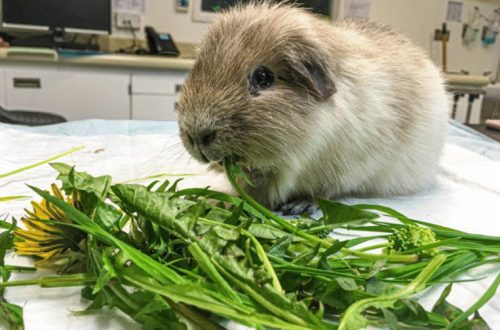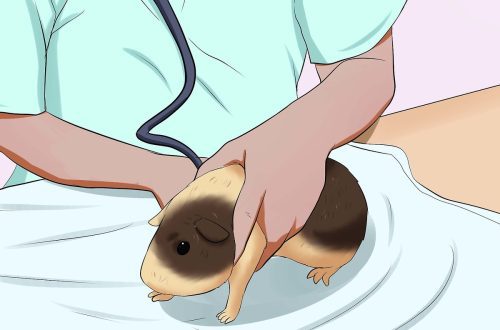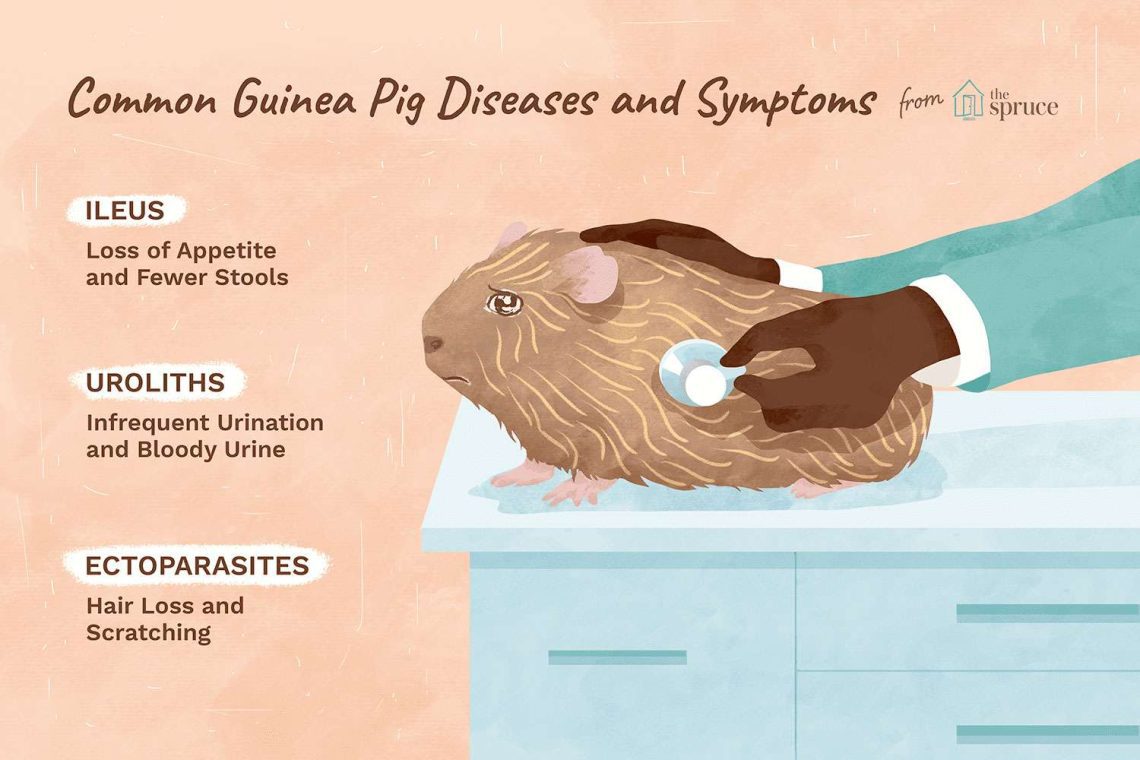
infections in guinea pigs
Infectious diseases are the infection of the body with microorganisms (viruses, bacteria, fungi, etc.), so all infectious diseases can be divided into viral infections, bacterial infections and fungal infections.
Symptoms of infectious diseases in guinea pigs are often similar, and only a veterinarian can determine (and even then not always!), It is a bacterial or viral infection.
The variety of external (clinical) symptoms of infectious diseases in guinea pigs is quite large. In addition, the same symptoms can accompany different diseases. Actions in each individual case should be determined by a veterinarian.
You should be aware of the following symptoms of infectious diseases:
- exudate from the nose (in a simple way, a runny nose),
- festering eyes and eyelids,
- tousled wool,
- diarrhea,
- weight loss,
- paralysis,
- hard breath,
- convulsions
- obvious changes in the behavior of the mumps.
In most cases, in order to save the animal, the intervention of a veterinarian is necessary.
Infectious diseases are the infection of the body with microorganisms (viruses, bacteria, fungi, etc.), so all infectious diseases can be divided into viral infections, bacterial infections and fungal infections.
Symptoms of infectious diseases in guinea pigs are often similar, and only a veterinarian can determine (and even then not always!), It is a bacterial or viral infection.
The variety of external (clinical) symptoms of infectious diseases in guinea pigs is quite large. In addition, the same symptoms can accompany different diseases. Actions in each individual case should be determined by a veterinarian.
You should be aware of the following symptoms of infectious diseases:
- exudate from the nose (in a simple way, a runny nose),
- festering eyes and eyelids,
- tousled wool,
- diarrhea,
- weight loss,
- paralysis,
- hard breath,
- convulsions
- obvious changes in the behavior of the mumps.
In most cases, in order to save the animal, the intervention of a veterinarian is necessary.
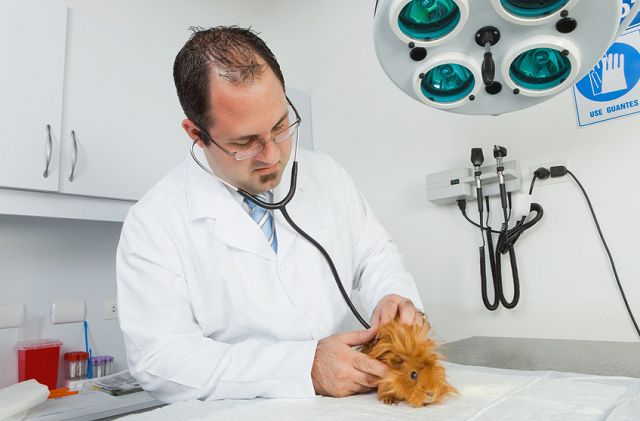
Contents
Viral infections in guinea pigs
There are a number of viral diseases that a guinea pig can get, which are not so common, but just as dangerous.
The worst of them are paralysis of guinea pigs and pestilence of guinea pigs.
The main symptoms of these diseases are immobility of the lower extremities, convulsions and paralysis. Treatment is carried out with antiviral drugs (Anandin, Fosprenil).
Symptoms such as disheveled, matted hair, nasal discharge, coughing, upset stools and noticeable changes in behavior are signs of a viral illness that should definitely alert you.
The fundamental principle of action in the presence of any viral disease is the immediate isolation of the infected animal from the rest. For there is a great danger of spreading the infection.
There are a number of viral diseases that a guinea pig can get, which are not so common, but just as dangerous.
The worst of them are paralysis of guinea pigs and pestilence of guinea pigs.
The main symptoms of these diseases are immobility of the lower extremities, convulsions and paralysis. Treatment is carried out with antiviral drugs (Anandin, Fosprenil).
Symptoms such as disheveled, matted hair, nasal discharge, coughing, upset stools and noticeable changes in behavior are signs of a viral illness that should definitely alert you.
The fundamental principle of action in the presence of any viral disease is the immediate isolation of the infected animal from the rest. For there is a great danger of spreading the infection.
Bacterial infections in guinea pigs
There are quite a few bacterial infections that threaten guinea pigs. Consider the most common.
There are quite a few bacterial infections that threaten guinea pigs. Consider the most common.
Pseudotuberculosis
The most common disease of guinea pigs caused by bacteria is the so-called pseudotuberculosis. Infection occurs through food. Despite the name, this disease has nothing to do with tuberculosis. Apparently, the point here is that when infected, specific nodules are formed in the internal organs, similar to nodules that appear with tuberculosis.
Symptoms of the disease:
- stool disorder
- stool becomes watery, with blood clots
- conjunctivitis
- poor appetite
- progressive exhaustion leading to convulsions and paralysis.
Due to the ongoing disorder of the stool, dehydration develops.
A sick animal must be isolated, as this disease is highly contagious and can kill the entire brood within a few days or weeks.
Be sure to contact your veterinarian. With timely treatment, improvement usually occurs after treatment with large doses of antibiotics (tetracycline), as well as sulfonamides.
The most common disease of guinea pigs caused by bacteria is the so-called pseudotuberculosis. Infection occurs through food. Despite the name, this disease has nothing to do with tuberculosis. Apparently, the point here is that when infected, specific nodules are formed in the internal organs, similar to nodules that appear with tuberculosis.
Symptoms of the disease:
- stool disorder
- stool becomes watery, with blood clots
- conjunctivitis
- poor appetite
- progressive exhaustion leading to convulsions and paralysis.
Due to the ongoing disorder of the stool, dehydration develops.
A sick animal must be isolated, as this disease is highly contagious and can kill the entire brood within a few days or weeks.
Be sure to contact your veterinarian. With timely treatment, improvement usually occurs after treatment with large doses of antibiotics (tetracycline), as well as sulfonamides.
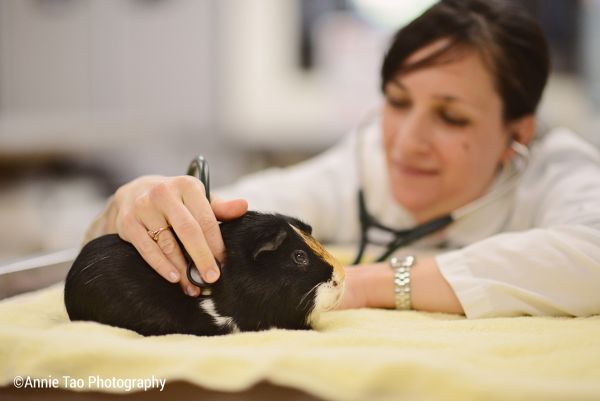
Paratyphoid
Paratyphoid is a group of intestinal infections caused by microorganisms of the genus Amiranella Salmonella.
Infection usually occurs through food and water.
Paratyphoid can occur in acute and chronic form.
Symptoms of acute paratyphoid in guinea pigs:
- lethargy, apathy, immobility of the animal
- refusal to feed
- stool disorder (greenish stool, with a sharp unpleasant odor)
Symptoms of the chronic form of paratyphoid in guinea pigs:
- loss of appetite
- disheveled wool
- lethargy, apathy, immobility
- on the 4th-6th day, a disorder of the stool appears.
For therapeutic purposes, an antityphoid bacteriophage and antibiotics (usually of the tetracycline series) are given as prescribed by a veterinarian.
Paratyphoid is a group of intestinal infections caused by microorganisms of the genus Amiranella Salmonella.
Infection usually occurs through food and water.
Paratyphoid can occur in acute and chronic form.
Symptoms of acute paratyphoid in guinea pigs:
- lethargy, apathy, immobility of the animal
- refusal to feed
- stool disorder (greenish stool, with a sharp unpleasant odor)
Symptoms of the chronic form of paratyphoid in guinea pigs:
- loss of appetite
- disheveled wool
- lethargy, apathy, immobility
- on the 4th-6th day, a disorder of the stool appears.
For therapeutic purposes, an antityphoid bacteriophage and antibiotics (usually of the tetracycline series) are given as prescribed by a veterinarian.
pasteurellosis
Pasteurellosis is an acute infectious disease caused by the bacterium Pasteurella multocida. In the external environment, this microorganism is unstable, it can be quickly destroyed by disinfectants.
characteristic a symptom of pasteurellosis is a runny nose. At first, only moistening of the hairs around the nostrils is noted, then sneezing, the animal rubs the nose with its front paws. From the nasal cavity appears mucous, and then purulent outflow. Breathing is heavy, with wheezing.
The disease can last for several months, then subside, then worsen. There are complications in the form of ulcers on various parts of the body.
When the causative agent of this disease enters the bloodstream, blood poisoning occurs, accompanied by high fever, general weakness, stool disorder, and sometimes convulsions.
There is no specific treatment for the disease. If a disease is suspected, animals are treated symptomatically, giving antibiotics (Tylozin or Farmazin, a suspension of biseptol is added to the water) and sulfanilamide preparations (1 tablet per day) – as prescribed by a veterinarian.
Pasteurellosis is an acute infectious disease caused by the bacterium Pasteurella multocida. In the external environment, this microorganism is unstable, it can be quickly destroyed by disinfectants.
characteristic a symptom of pasteurellosis is a runny nose. At first, only moistening of the hairs around the nostrils is noted, then sneezing, the animal rubs the nose with its front paws. From the nasal cavity appears mucous, and then purulent outflow. Breathing is heavy, with wheezing.
The disease can last for several months, then subside, then worsen. There are complications in the form of ulcers on various parts of the body.
When the causative agent of this disease enters the bloodstream, blood poisoning occurs, accompanied by high fever, general weakness, stool disorder, and sometimes convulsions.
There is no specific treatment for the disease. If a disease is suspected, animals are treated symptomatically, giving antibiotics (Tylozin or Farmazin, a suspension of biseptol is added to the water) and sulfanilamide preparations (1 tablet per day) – as prescribed by a veterinarian.
Health to your pigs! May they never get sick!
Health to your pigs! May they never get sick!



